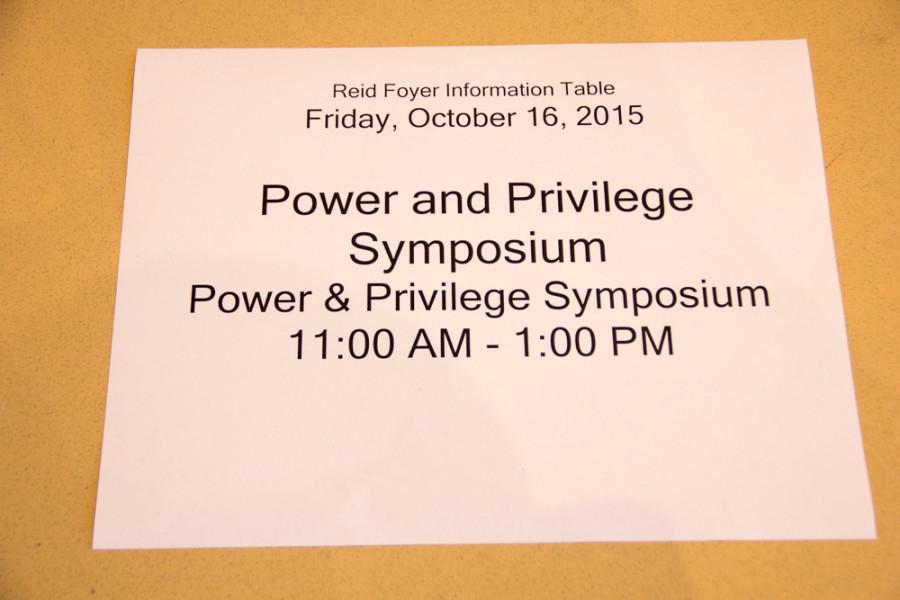Symposium Leaders Gather Ideas for 2016 Workshops
October 22, 2015
Leaders of the 2016 Power and Privilege Symposium are preparing for the February event by speaking with students about possible panel topics, both in person during tabling events and via online applications. The Symposium is an annual event centered around discussions of issues like power dynamics, racial stereotypes, gender orientation, and growing up with or without the presence of privilege, creating a greater awareness of these issues for students, faculty, and staff.
“This is an event for students to have a space to talk about their own experiences and their own issues that they are going through,” the Executive Director Anna Zheng ’17 said. “I think that this is very important because it is a space for people to voice and express their perspectives and it really should expand your awareness on your reality versus other’s.”
Last year after the Symposium, staff members, and student leaders came together to talk about improvements that could be made to build upon the topics and the way that they were discussed. This year, event organizers are hoping to increase participation and emphasize conversations between Symposium attendees.
“I think a reason that a lot of people don’t go to the Symposium is that they don’t want to be spoken to or lectured at,” Co-Director of Programming Elliot Granath ’17 said. “They feel like they should be able to have their own voice, and in that sense our only really goal is to open conversations.”
The Marketing Director of the Power and Privilege Symposium Samantha Grainger-Shuba ’16, has been working on making the information available for students. According to Grainger-Shuba, this year’s Symposium is working to bring people together to discuss issues that not everyone feels comfortable talking about.

“Every year I think we say the same thing, that really the goal is that not [to bring in] the most people but just [to have] someone walk away learning something new,” Grainger-Shuba said. “[This is especially true] if you choose panels that you don’t know anything about, specifically, I went to one about queer issues and mental health. Those two panels truly allowed me to expand into an area of inequality or an area of issue that I didn’t know anything about.”
The goal of recent tabling events and online applications has been to explore a wide range of possible topics for panels. Although it is too early for event organizers to know the exact format of the event, previous versions of the Symposium have included four sessions each with 12 to 13 panels led by a combination of students, staff, and faculty, as well as a keynote speaker talking at a separate time.
The Associate Dean of Cultural Affairs and Chief Diversity Officer Kazi Joshua is in full support of this event and believes that this is an essential part of bringing the school together to recognize who we are and what we represent. Although, he also sees that there are some improvements that can be made this year.
“My hope is that this symposium continues to be a reminder to everybody at Whitman to what we claim to be and to what we can become,” said Joshua. “That every person–staff, student, faculty who steps on the grounds of Whitman can feel, be treated, and believe that they are a valued member of this community. That no one will [be] slighted; that nobody will be disrespected; that nobody will mistreated because of their sexual orientation, their religion, or national origin. That this symposium becomes one small part of truly creating a democratic and inclusive society called Whitman, because that’s who we really are.”






